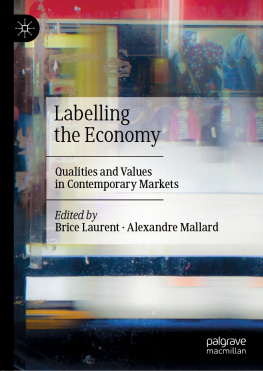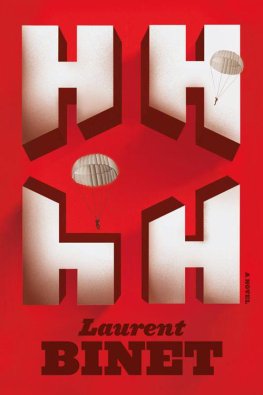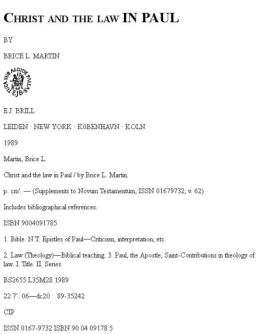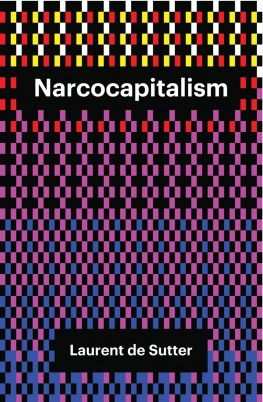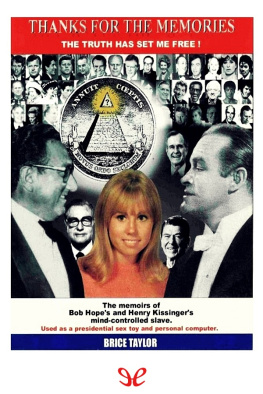Brice Laurent - European objects : the troubled dreams of harmonization
Here you can read online Brice Laurent - European objects : the troubled dreams of harmonization full text of the book (entire story) in english for free. Download pdf and epub, get meaning, cover and reviews about this ebook. year: 2022, genre: Romance novel. Description of the work, (preface) as well as reviews are available. Best literature library LitArk.com created for fans of good reading and offers a wide selection of genres:
Romance novel
Science fiction
Adventure
Detective
Science
History
Home and family
Prose
Art
Politics
Computer
Non-fiction
Religion
Business
Children
Humor
Choose a favorite category and find really read worthwhile books. Enjoy immersion in the world of imagination, feel the emotions of the characters or learn something new for yourself, make an fascinating discovery.

- Book:European objects : the troubled dreams of harmonization
- Author:
- Genre:
- Year:2022
- Rating:4 / 5
- Favourites:Add to favourites
- Your mark:
- 80
- 1
- 2
- 3
- 4
- 5
European objects : the troubled dreams of harmonization: summary, description and annotation
We offer to read an annotation, description, summary or preface (depends on what the author of the book "European objects : the troubled dreams of harmonization" wrote himself). If you haven't found the necessary information about the book — write in the comments, we will try to find it.
Brice Laurent: author's other books
Who wrote European objects : the troubled dreams of harmonization? Find out the surname, the name of the author of the book and a list of all author's works by series.
European objects : the troubled dreams of harmonization — read online for free the complete book (whole text) full work
Below is the text of the book, divided by pages. System saving the place of the last page read, allows you to conveniently read the book "European objects : the troubled dreams of harmonization" online for free, without having to search again every time where you left off. Put a bookmark, and you can go to the page where you finished reading at any time.
Font size:
Interval:
Bookmark:
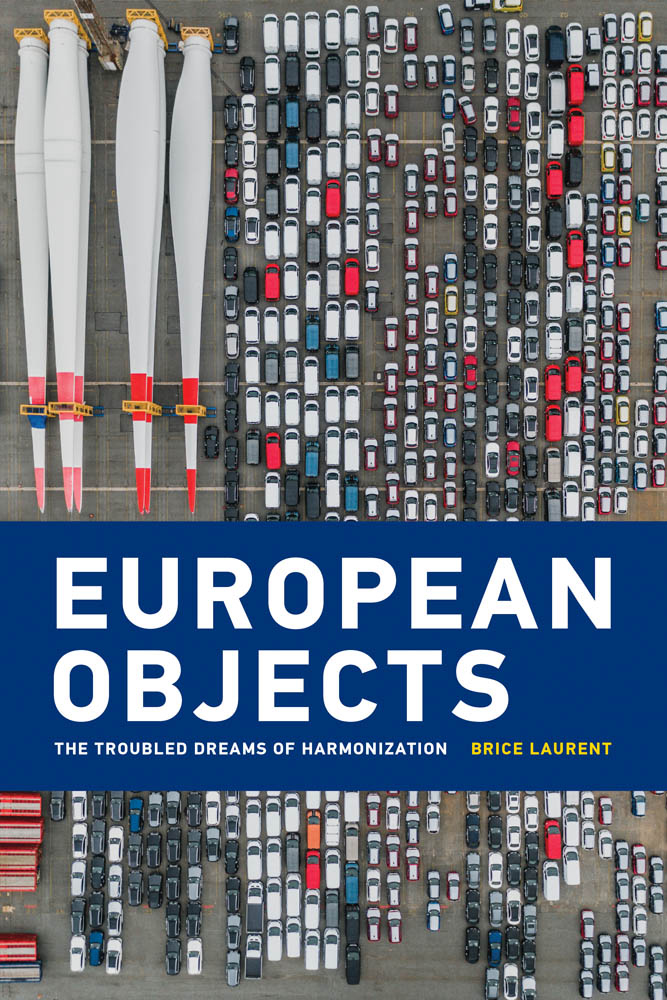
Inside Technology
Edited by Wiebe E. Bijker, Trevor J. Pinch, and Rebecca Slayton
A list of books in the series appears at the .
EUROPEAN OBJECTS
THE TROUBLED DREAMS OF HARMONIZATION
BRICE LAURENT
THE MIT PRESSCAMBRIDGE, MASSACHUSETTSLONDON, ENGLAND
2022 Massachusetts Institute of Technology
This work is subject to a Creative Commons CC-BY-NC-ND license.
Subject to such license, all rights are reserved.

The open access edition of this book was made possible by generous funding from Arcadiaa charitable fund of Lisbet Rausing and Peter Baldwin.

The MIT Press would like to thank the anonymous peer reviewers who provided comments on drafts of this book. The generous work of academic experts is essential for establishing the authority and quality of our publications. We acknowledge with gratitude the contributions of these otherwise uncredited readers.
Library of Congress Cataloging-in-Publication Data
Names: Laurent, Brice, author.
Title: European objects : the troubled dreams of harmonization / Brice Laurent.
Description: Cambridge, MA : The MIT Press, 2022. | Series: Inside technology | Includes bibliographical references and index.
Identifiers: LCCN 2021019727 | ISBN 9780262543330 (paperback)
Subjects: LCSH: European UnionEconomic integration. | European UnionGreat Britain. | Great BritainForeign economic relationsEuropean Union countries. | European Union countriesForeign economic relationsGreat Britain. | Administrative agenciesEuropean Union countries. | European Union countriesPolitics and government.
Classification: LCC HC241 .L358 2022 | DDC 337.1/42dc23
LC record available at https://lccn.loc.gov/2021019727
d_r0
- The standardized CE logo.
- Painting electricity in green with green certificates, BEUC, 2016.
This book builds on several research projects, and many of them were conducted in collaboration with colleagues. I worked with Alexandre Mallard and Aurlie Tricoire on construction products and labels; Henri Boullier and Franois Thoreau on European chemicals; and Brieuc Petit on green energy certificates. I am grateful to all of them for our collaborative projects. I am particularly thankful to Baak Sara-Lesavre and Alexandre Violle, with whom I worked on European stress tests. Chapter 8 of this book is based on the papers we published together. I owe a lot to Liliana Doganova for our ongoing collaboration in the study of the politics of market making.
Many of the ideas developed in this book originate from conversations I had when presenting my work on European objects to academic audiences in Europe and in the United States. I am grateful to all those people who took the time to comment on this work as it was developing. I am particularly thankful to colleagues at the Center for the Sociology of Innovation at Mines ParisTech, the Munich Center for Technology in Society at the Technical University of Munich, and the members of the Science and Democracy Network, who listened to and commented on several versions of the arguments presented here. I thank Antoine Hennion and the members of his group working on attachements for their willingness to engage with this work.
A first version of this book was a manuscript submitted for the Habilitation to Supervise Research at Sciences Po Paris (Habilitation Diriger des Recherches, HDR). I thank Olivier Borraz for his constant support, and Ulrike Felt, Sheila Jasanoff, Patrick Le Gals, Javier Lezaun, and Andy Smith, who spent time to comment on the manuscript and participate in the HDR defense in July 2019.
On July 17, 2019, Boris Johnson spoke during the final husting of the British Conservative Partys leadership contest, after which he would become prime minister. To an audience used to his tricks and jokes and perhaps half-expecting them, Johnson showed a plastic-wrapped kipper. He claimed that the cost of sending kippers such as the one he produced through the post had massively increased because of Brusselss bureaucrats insisting that each kipper must be accompanied by a plastic ice pillow. The statement was carefully formulated. There are indeed many rules governing the circulation of fish products, both for safety reasons and to ensure the harmonization of the European market, but the ice pillow was not a European requirement. Yet Johnsons anecdote did resonate with the Conservative Party members who listened to him, whose laughs showed that they knew all too well what the kipper example was about. Johnsons point was less about the particularities of the rules determining the correct temperature range for fish products than about the pervasiveness of European regulation in everyday objects and the feeling that it could creep into everyday lives if not kept in check.
Johnsons kipper story can be paralleled with numerous tales of the absurdity of the bureaucratic state, of which European regulations are often the target. For example, in Le retour du gnral, a novel published in 2010 by French writer Benot Duteurtre, a new European regulation prohibits restaurant owners from preparing their own traditional oeufs mayonnaise and compels them to use standardized mayonnaise strictly defined by painstakingly detailed standards. In Duteurtres novel, this irritating European intervention into the daily life of the narrator compels 120-year-old General Charles de Gaulle himself to come back to life to save France yet again from foreign threats. As Johnson and the Brexiters ready to use the discourse of the sovereign nation at last freed from the shackles of the European bureaucracy, the novelist here opposes the strength of national politics to the faceless European goals pursued for the sake of the market and technical expertise.
These stories capture a diffuse feeling throughout Europe, of which Brexit is currently the most visible manifestation. Their narrative structures oppose the cold power of technocratic expertise and the rich texture of peoples lives. These stories are based on the confrontation between the annoying yet pervasive bureaucratic interventions pursuing abstract ends and a political domain close to peoples interests and concerns. This confrontation has a distinctive ring that can be heard in many contemporary democracies including the United States, where President Donald Trump framed his attacks on expertise as a fight against the deep state that would pursue its own interests at the expense of everyday Americans. The narratives opposing technocracy and peoples concerns function particularly well in the European Union (EU), where they insist on the technicality of the European project as it manifests itself in our everyday lives through arcane procedures. They claim that this technicality requires no less than the radical reaffirmation of national interest if not the resurgence of a mythical national figure, such as de Gaulle himself in Duteurtres novel.
Font size:
Interval:
Bookmark:
Similar books «European objects : the troubled dreams of harmonization»
Look at similar books to European objects : the troubled dreams of harmonization. We have selected literature similar in name and meaning in the hope of providing readers with more options to find new, interesting, not yet read works.
Discussion, reviews of the book European objects : the troubled dreams of harmonization and just readers' own opinions. Leave your comments, write what you think about the work, its meaning or the main characters. Specify what exactly you liked and what you didn't like, and why you think so.

